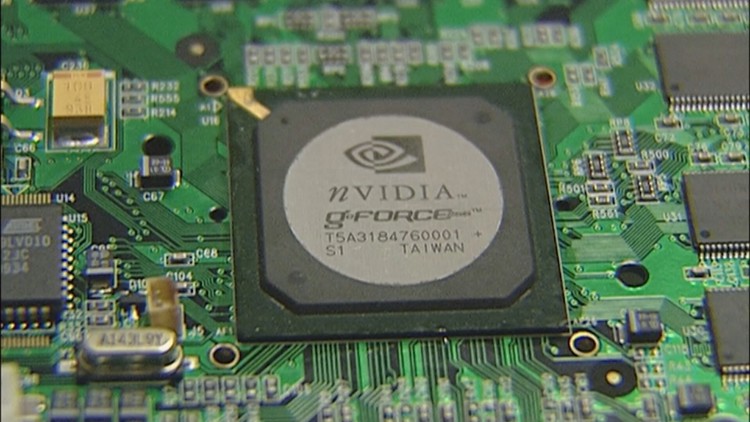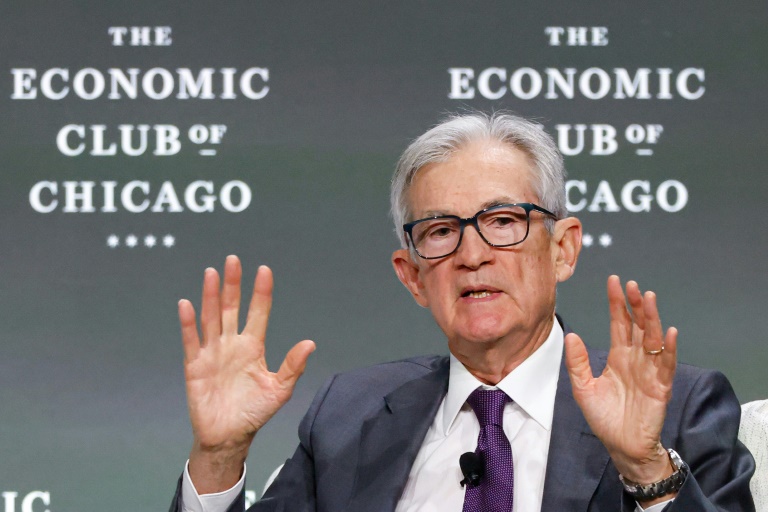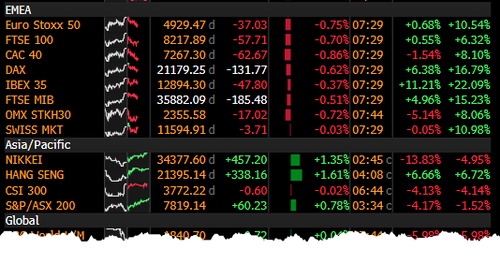BUFFALO, N.Y. — A new development has surfaced in the White House tariffs' policies with a focus now on computer chips we have in all our electronic devices, like smartphones and computers.
It is actually a review of chips manufacturing around the world with plans to bring more production back to the U.S. and even upstate New York.

President Trump has made it clear on his views regarding the manufacture of computer chips as he told reporters, "Without the semiconductors, there is no economy. We must be able to build the chips and semiconductors that we need right here in American factories with American skill and American labor." To reinforce that goal, a U.
S. Commerce Department review is underway for worldwide chips manufacturing from a national security basis. Our military needs chips to guide missiles and help fighter jets stay on course.
As the President noted, it is also much of our economy with our high tech devices. There is a realization that currently the majority of higher end chips come from Taiwan, which is always threatened by a potential attack or invasion from China. "TSMC - they're based in Taiwan - they make the absolute best chips that are used at a really high level - things like weapons and AI and really sophisticated computer systems," Syracuse University Professor Patrick Penfield, supply chain management expert, said.
"So I would think that might be part of what the Trump Administration is doing. Cause we are somewhat exposed if something were to happen to Taiwan. If there was some type of conflict it could be a real bad situation for the United States in regards to getting these high end chips.
" He added, "President Trump is not wrong in regards to bringing manufacturing back to the United States. We just need to do certain types of manufacturing and the tariff approach is probably the wrong approach." Penfield feels it causes an investment uncertainty factor for the chips manufacturers with potential tariff talks with Taiwan, South Korea and other Asian nations.
Chip makers are now investing more in the U.S. in places like Arizona, Texas, and Ohio.
And then there's Syracuse, with the $100 billion Micron plant which is backed by $6 billion in CHIPS Act federal funding and state and local tax dollars. It may produce future upstate employment prospects with some already in the works with plans for the new UB School of Engineering. UB alumnus and software development executive Russell Agrusa donated $40 million to that project last year and he told 2 On Your Side in September, "Students coming out of here are a perfect match for Micron, for Nvidia, for Intel.
Many of them have gone off to those companies." Professor Penfield also spoke of a potential workforce for Micron and an upstate supply chain. "That's 9,000 jobs and then to support those 9,000 jobs on that campus - they're talking about another 40,000 workers that will be needed from a supply chain standpoint," Penfield said.
"That is something that we want here in the states again as we want those high end jobs. And we want companies to locate here. And if we can do that again, we might see a renaissance in manufacturing.
" President Trump mentioned new chip tariffs could be coming soon. However, U.S.
Commerce Secretary Lutnick said the White House review may take a month or two before decisions are made. Tariffs are pending for pharmaceutical products as well..
Business

Trump Administration studies tariffs policy for semiconductors made overseas as companies invest in U.S.

Chips makers make U.S. plant investments in New York, Ohio, Arizona, and Texas.















